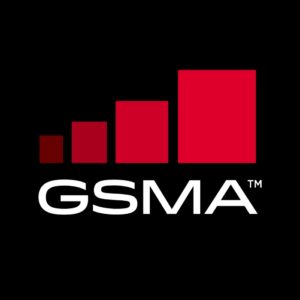Tokyo provided an especially fitting location for the RCS Business Messaging Awareness Lab. Through global brand campaigns, Japanese operators have proved both the value of RCS to enterprise in communicating with their customers, as well as the speed, scale and reach that can be achieved through truly interoperable collaboration.
The three main Japanese operators – KDDI, SoftBank, and NTT DOCOMO – reached an agreement to join forces on RCS, fully aligning their delivery platforms under the shared name “+Message”. Each of the Japanese operators utilise slightly different technologies to deploy +Message to their customers, but adopting the specifications set out in the GSMA’s RCS standards has allowed them to create a unified user interface, to enable shared service features between networks; and unified branding, so customers know they’re using a common tool regardless of their subscription. It was clear to see from the engagement and turnout at the RCS Awareness Lab that there is a hunger from new entrants to understand how to best get started and utilise this technology.
A joint presentation by the three operators – Yumiko Kanayama, General Manager of KDDI’s Service Planning Department, Ryokichi Takahashi, Senior Manager at NTT Docomo’s Smart Life Planning Department, and Junko Askura, Director at SoftBank – gave a clear overview on the situation to date, as well as a look ahead to the near future. As they explained, since the launch of +Message at MWC Shanghai in June 2018, monthly active users have soared from around 2 million to over 13 million – an increase of more than 650% in only 18 months. Forecasts indicate that, by H2 2021, this total is set to exceed 40 million users.
The results so far have been striking for brands. For one financial services A2P use case, for instance, the open rate was above 85%, and compared to SMS the click-through rate was more than 40% higher. In another, a commercial questionnaire, the answer rate with RCS was over 40%, four times the typical web rate of around 10%. To help the market grow and enable more businesses to take advantage of these strengths, the operators proposed 4 key measures to ensure RCS Business Messaging reaches its potential in Japan: ensure it can connect with other operators beyond the existing agreement, expand the existing network of aggregators, introduce session billing, and generate more “killer use cases”.
Key delivery partners were at hand to explain how enterprises can use RCS in their future marketing campaigns, allowing them to send branded messages, share multimedia content, track message delivery, optimise deployment through analytics, drive engagement with suggested replies, provided automated customer support via AI chatbots, and much more. According to Gavin Patterson, Chief Data Analyst at Mobilesquared, 68% of consumers are now interested in seeing what RCS has to offer, “so the time to get started is now”. Research by LivePerson found that RCS-based customer care via chatbots can drive a saving to business of more than 75% over traditional call centres, while also driving operator revenues: the shared interest is there even in auxiliary functions like customer support.
Mobilesquared’s calculations show just how much further marketing via RCS goes than traditional approaches like direct mail or even mobile banner ads. Total advertising in Japan was worth US$58.1 billion in 2019, with overall mobile advertising worth US$11.46 billion. If just 10% (US$413 million) was spent on RCS instead, it would buy 7.2 billion ads – for a performance uplift of 12,833%! Advantages like these are why Mobilesquared forecast the global RCS market to grow by up to 68% by 2023. That’s why RCS client vendors like Summit Tech are launching rapidly across markets and operators – as Chief Process Officer at Summit Tech Ron Nessim explained, RCS makes ingenious developments like gamification, whereby otherwise mundane administrative processes are made a form of entertainment, which drive measurable uplifts in engagement.
“It was great to hear from the Japanese operators the tremendous success they have seen so far in the launch of +Message – the first common client, cross-carrier, country-wide RCS-enabled messaging app,” reflected Mary Clark, Chief Product Officer and CMO at Synchronoss, who sponsored the event. “It was clear from the discussion that there is a material opportunity to drive new revenue and the Japanese market is leading the way. Synchronoss is honoured to have sponsored the event and looks forward to the very bright future of RCS around the world.” The GSMA couldn’t agree more – and Future Networks are already looking forward to our next RCS Business Messaging Awareness Lab in Barcelona, where those already leading the way in RCS for enterprise will meet to help chart the course ahead.
If you’d like to register your interest in attending, please do so here.

